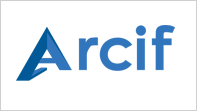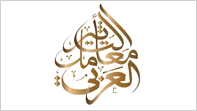The role of the teacher in developing educational values among secondary school students Idry School is a model
DOI:
https://doi.org/10.51984/johs.v23i1.2654Keywords:
Role, Teacher, Values, Educational, StudentAbstract
The research aimed to identify the role of the teacher in developing educational values among secondary school students from their point of view. Identifying the difference between the average scores of the sample members on the role of the teacher in developing educational values is attributed to the research variables (Gender, student specialty, teacher specialty) For the purpose of achieving the goal of the research, the researcher designed a tool whose apparent validity and reliability was confirmed and was distributed to a sample of 102 male and female students. The research population included secondary school students in the Edre region, and she used the descriptive analytical approach. To describe and analyze the phenomenon, the researcher reached several results through the questionnaire paragraphs, namely that all teachers seek to develop educational values for students in the middle school certificate, where high averages were obtained. There are no statistically significant differences regarding the role of the teacher in developing educational values. The secondary school students in the Edre area, from their point of view. There are no statistically significant differences regarding the role of the teacher in developing educational values among secondary school students in the Idri region from their point of view due to the student’s specialization variable. There are statistically significant differences regarding the role of the teacher in developing educational values among students The secondary certificate in the Idri region, from their point of view, is due to the teacher’s specialization variable, and these differences are in favor of Arabic language teachers.
Downloads
Downloads
Published
License
Journal of Humanities Policy on Intellectual Property and Plagiarism
1. Commitment to Intellectual Property and Ethics
The Journal of Humanities (JOHS) is fully committed to respecting intellectual property rights and aims to protect the originality and authentic work of authors who submit their manuscripts for publication. The journal takes a firm stand against articles that contain any form of plagiarism and emphasizes the need for all researchers to adhere to the highest ethical standards in scientific research.
2. Anti-Plagiarism Policy
The journal considers plagiarism a serious violation of academic ethics. Therefore, authors must ensure that their work is original and not plagiarized, and that any use of external sources is properly cited and documented according to correct academic standards.
-
Actions Taken: In the event that any plagiarism or academic theft is discovered in a submitted article, the editorial board will contact the author to request a formal explanation within a maximum period of two weeks from the date of notification.
-
Investigation and Decision: After receiving the explanation, the article will be referred to the journal's specialized committees, which will investigate the matter and take the necessary measures, which may include the permanent rejection of the article and the imposition of disciplinary actions.
3. Publication License and Author Rights
The journal adopts the Creative Commons license type Attribution-NonCommercial-NoDerivs 4.0 International (CC BY-NC-ND 4.0), which allows for the following:
-
Attribution: Users are entitled to cite the content published in the journal and use it in their work, provided that the original source and author are clearly credited.
-
Non-Commercial: The published content may not be used for any commercial purpose.
-
NoDerivs: It is not permitted to make any modifications, distortions, or to build derivative works from the published content.
Under this license, authors are required to complete an exclusive license agreement for the journal. Authors retain the rights to their research data and may reuse and share their work for scientific purposes with proper citation.







